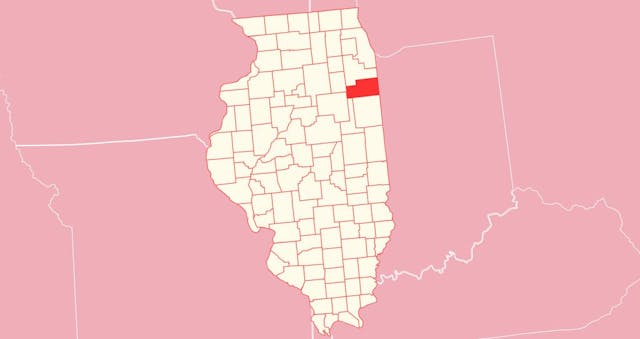Rehabs in Kankakee
Kankakee County is situated in the state of Illinois, U.S. There are 106,601 people living there, according to the 2021 Census. Kankakee serves as the county seat.
Meade County offers a wide variety of entertainment, culture, landscape, and history. Addiction-related issues, however, are one of the problems that the area faces. These issues are to be solved so the Kankakee county rehabs provide different types of treatment for everyone.
The article below reveals information about the treatment types and who they suit the most.
Substance Use Treatment
Millions of people in the United States are afflicted by substance misuse, which is a challenging issue that impacts not only the person with dependency but also their loved ones and friends. Every substance abuse history is unique. Just like each person is unique, so should their healing. Thus, each patient needs a thorough check-up before they enter any rehab. The evaluation process includes consultations and some lab tests.
Inpatient and outpatient programs are both available at rehab centers to help people stay clean. As well as medically they offer supervised detox to help patients quit using drugs or alcohol.
Any type of addiction is a serious and challenging condition to cure. Rehab clinics, therefore, provide customized healing plans to cater to every stage of recovery's unique needs.
Detoxification
Detox is the process of getting rid of of drugs or alcohol from the patient’s body. It intends to relieve withdrawal symptoms safely when someone stops using opioids.
Each person's detox journey is distinct. What will it be like then, depending on the kind of substance used and the dosage?
It may take days or even months to go past withdrawal symptoms for the majority of medications. A lot of factors affect the withdrawal's length. It can be the kind of drug the user is addicted to or the length of time the dependency has persisted. Other considerations include the quantity of the substance consumed, family history, and underlying medical issues.
Home Detox
It could be dangerous and even fatal to decide to detox at home. Without medical attention, quitting "cold turkey" can have disastrous consequences, such as seizures and severe dehydration.
Detox programs, both inpatient and outpatient, help prevent negative side effects. People with severe addictions should have inpatient care because withdrawal might be fatal. With an inpatient one, there is ongoing oversight and support.
Inpatient Rehab
A patient receives therapy through inpatient rehab, during which they stay at a center for a fixed period. During this time, the person gets support and help to deal with issues related to their addiction.
In residential facilities, some of the top specialists, such as family practitioners, psychiatrists, counselors, therapists, and others, work. In addition, most residential rehabs provide counseling, psychotherapy, and support groups.
Outpatient Rehab
Clients can attend therapy sessions and support groups on outpatient programs at various times during the week. With the help of this routine, patients can continue their regular activities while staying in their homes. They must, however, report for care at the appointed times for counseling and medication.
Outpatient care methods have a strong emphasis on networking, education, and counseling. They are available in various formats, with various levels of intensity, and with a variety of services.
This training has a reasonable price. This is so that outpatient therapy is more affordable than a residential one. After all, people can receive assistance while living at home. It helps to cut back on lodging costs.
Payment
The fees for rehab care is generally based on the individual needs of the client as well as the center he or she chooses. The county offers a wide variety of recovery centers that are affordable for all. Most often, the centers offer their financial aid programs or accept federally-funded programs like Medicaid or Medicare.
Free Clinics
in many state-supported facilities in Illinois are financed to offer residents addiction therapy. Being a part of Illinois, Kankakee also offers free medical care. There are also drug misuse treatment centers that accept Medicaid. Here are some of the clinics in or near Kankakee that offer free care:
- Duane Dean Behavioral Health Center
700 East Court Street
Kankakee, IL - 60901
(815) 939-0125
- Sunspire Health Heartland
1237 East 1600 North Road
Gilman, IL - 60938
(815) 865-3282
- One direction forward inc.
4747 Lincoln Mall Drive
Matteson, IL - 60443
(708) 300-6977

